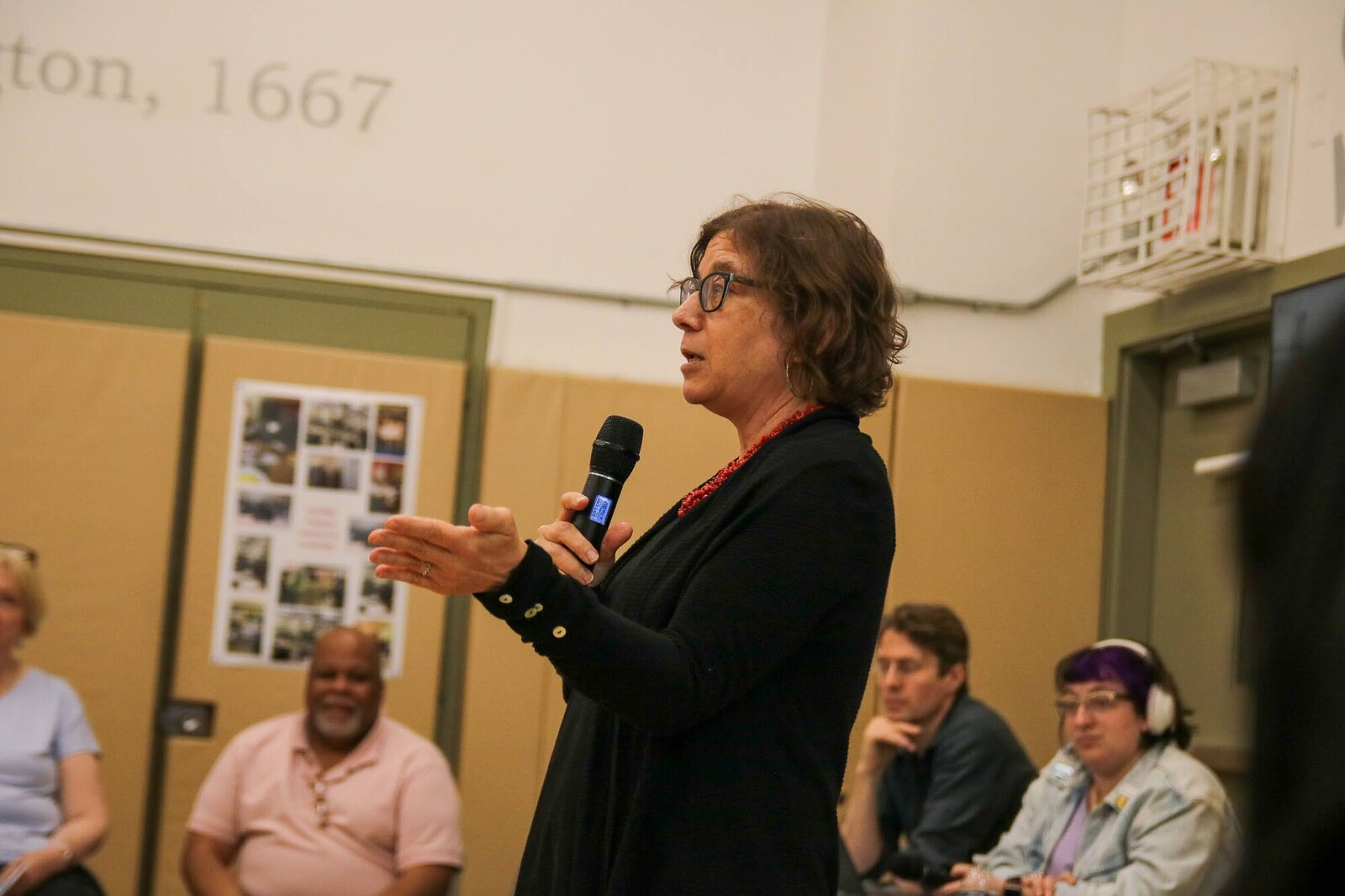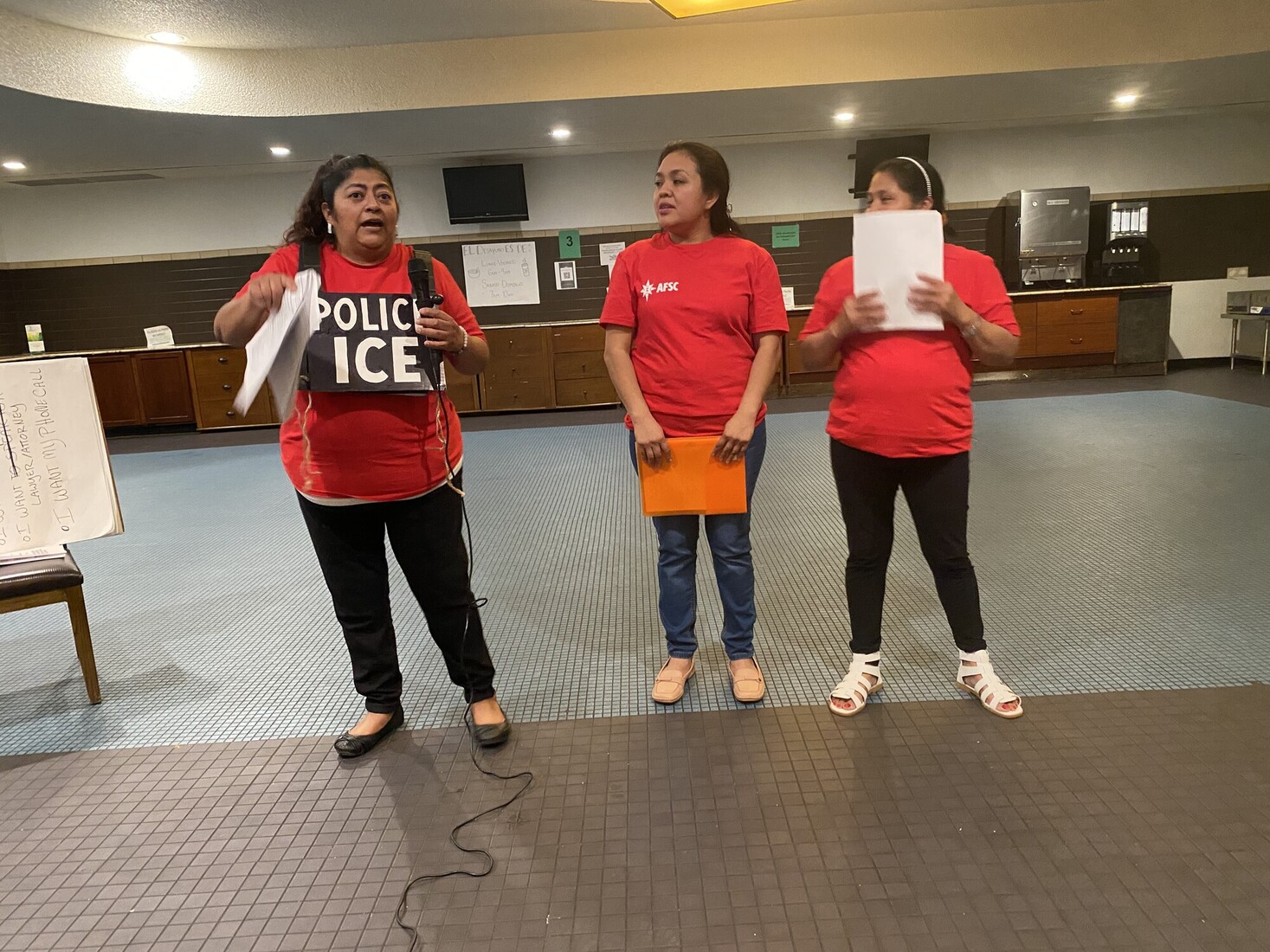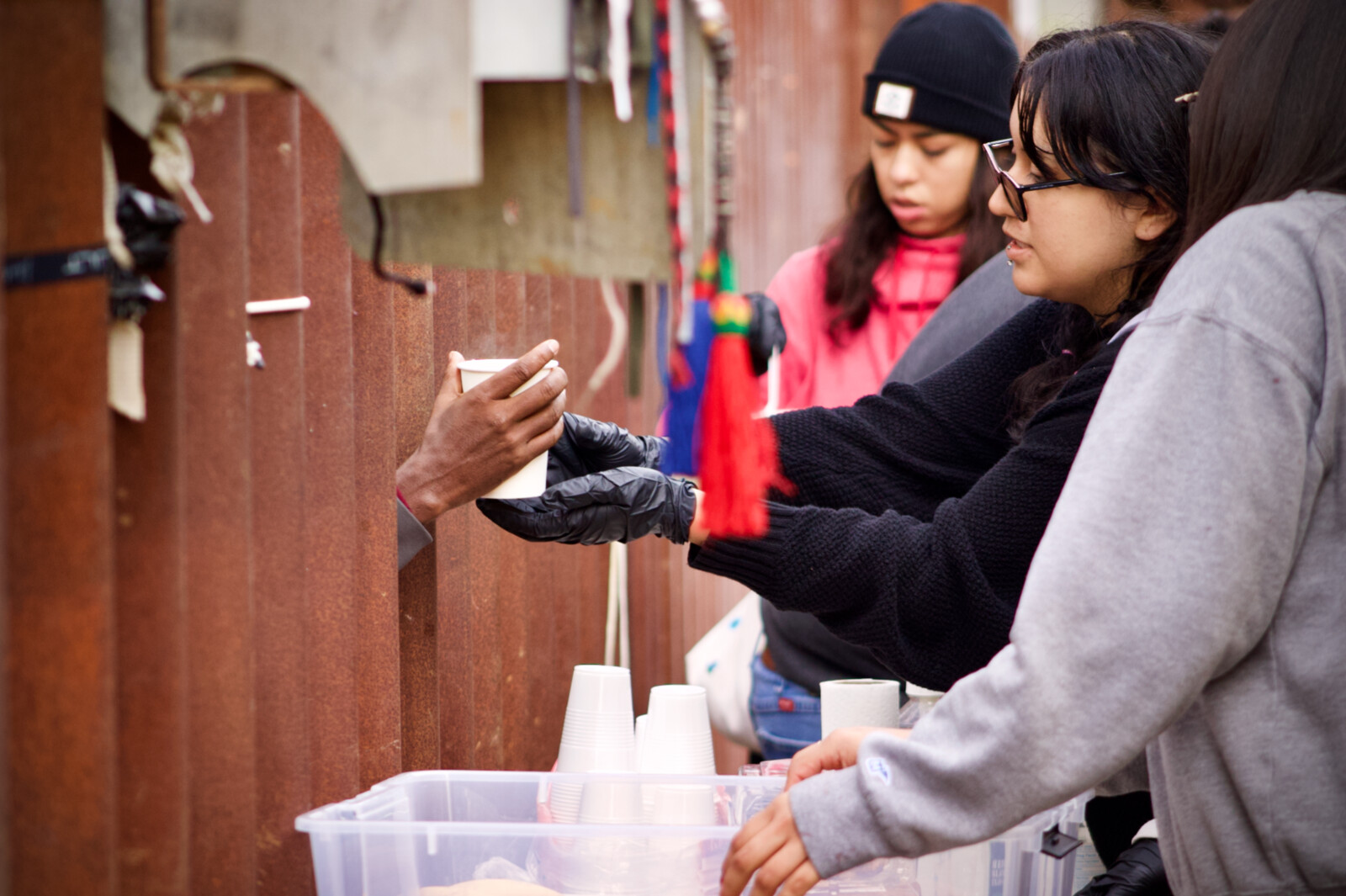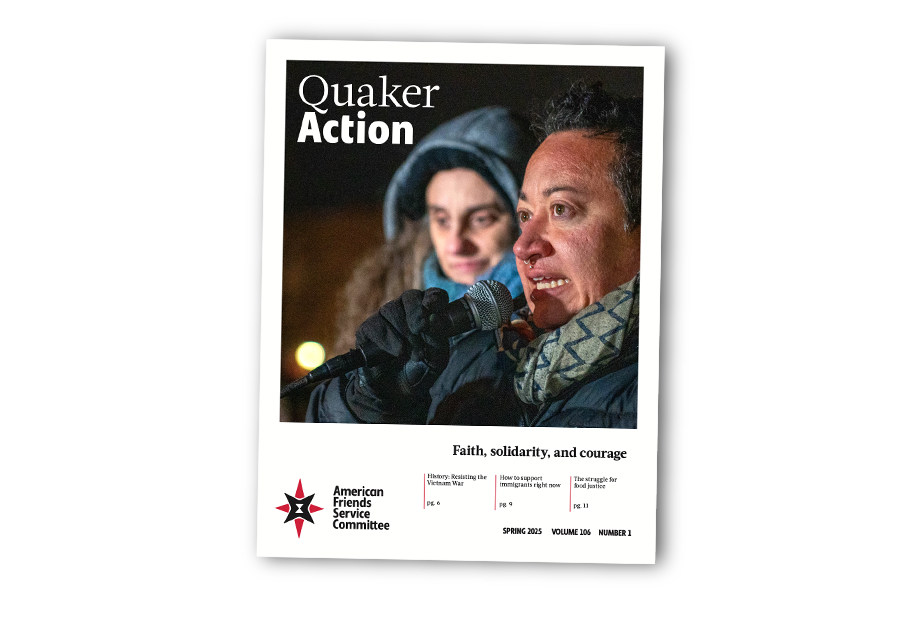
Amy Gottlieb speaks about immigrant rights. Photo: Linda Sable
The United States should welcome immigrants with dignity and ensure their rights are respected. But since taking office, the Trump administration has enacted policies that endanger the lives of millions of immigrants, violate their rights, and devastate families and communities.
As a Quaker organization, AFSC’s work is led by our belief in the inherent worth of all individuals. We join with people across the country who recognize that immigrants make our communities stronger.
In this interview, U.S. Migration Director Amy Gottlieb discusses how immigrants and allies across the country are calling for welcoming, dignified, and just immigration policies, with support from AFSC.
Q: We often hear “Why don’t immigrants just come here legally?” Could you explain some of the reasons why that’s difficult for so many to do?
People migrate for a range of reasons—to seek safety, to seek better opportunities, to seek refuge from climate disasters. Most people in the U.S. believe that our immigration system should be welcoming and fair, but many aren’t aware of the many barriers immigrants face. People can’t simply “get in line” for an immigrant visa. Visas generally depend on family relationships and country of origin, with wait lists that can stretch for decades. There are also huge backlogs in visa processing.
For people seeking to legalize their status, there’s no pathway to citizenship—even if they have lived in the U.S. most of their lives, have children here, work and pay taxes, and are already part of our communities.

AFSC immigrant leaders (left to right: Betty, Hilda, and Maria) conduct A Know Your Rights training in Colorado. Photo: Gabriela Flora/AFSC
Q: How will policy changes implemented by the Trump administration affect immigration in the U.S.?
The administration has moved to vastly expand deportations, putting millions of families and community members at risk for separation. They’ve increased raids and arrests and threatened sanctuary cities and states. They ended a longstanding policy that discouraged Immigration and Customs Enforcement (ICE) officers from entering or making arrests in schools, hospitals, places of worship, and other sensitive areas. That could deter immigrants from getting emergency care, sending their kids to school, or even practicing their faith.
Now it’s even harder for people to come to the U.S. The administration has shut down the U.S.-Mexico border, closing the door on people seeking safety and opportunities. They have also suspended the refugee program for at least four months, stranding thousands of refugees who have already been approved for admission.
In addition, the Trump administration is attempting to revoke citizenship from some U.S.-born children of immigrants—a constitutional right. At least 20 states have sued to challenge the order. In an initial response, a federal court said that the revocation is blatantly unconstitutional.

Providing humanitarian aid to migrants at the U.S.-Mexico border in San Diego. Photo: Pedro Rios/AFSC
Q: How is AFSC supporting immigrants and other community members?
AFSC programs across the U.S. have been providing support to immigrants and allies for decades. In recent months, we have ramped up our efforts. We are providing more Know Your Rights trainings so immigrants, their family members, and other community members understand what to do when ICE shows up. We're supporting rapid response efforts in neighborhoods that are targeted by ICE or Border Patrol and assisting people if they or a loved one are detained. We’re also working with families to create emergency plans to prepare for such situations.
In San Diego, California, AFSC is providing humanitarian assistance to migrants at the border. In New Jersey and Florida, we’re continuing to provide immigrants with legal representation and social work services. In Mexico, Guatemala, and El Salvador, we’re planning to provide support to people deported to these countries. This includes providing humanitarian aid, documenting human rights violations, and advocating for just policy changes.
In all our efforts, we make sure people understand the historical and political reasons behind these anti-immigrant policies. We support them in organizing for the changes we want to see and are guided by their leadership.
Q: How can allies show solidarity with immigrants right now?
One powerful thing we can all do is to share how immigrants strengthen our communities. We can shift the narrative away from anti-immigrant rhetoric by having hard conversations with family and friends, writing letters to the editor, and hosting community discussions.
Keep writing, calling, and meeting with members of Congress and local officials—even those who may disagree with us. Take part in protests and other actions in your community. Public witness in support of humane policies can pressure elected officials and inspire others to join.
Consider getting involved in immigrant accompaniment programs. Depending on where you live, you may find an AFSC program or other organization that supports immigrants through court processes, ICE check-ins, and other appointments.
While organizing for policy change takes time, we know from history that it works. Stay grounded during these challenging times and don't let the negative news overwhelm you. Celebrate the victories, no matter how small. Focus your energy where you feel you can make the most impact.
Remember that we’re part of a larger community of people working from a place of love, respect, and welcome. We're not just resisting harmful policies. We're building toward a just immigration system that treats all people with dignity.
